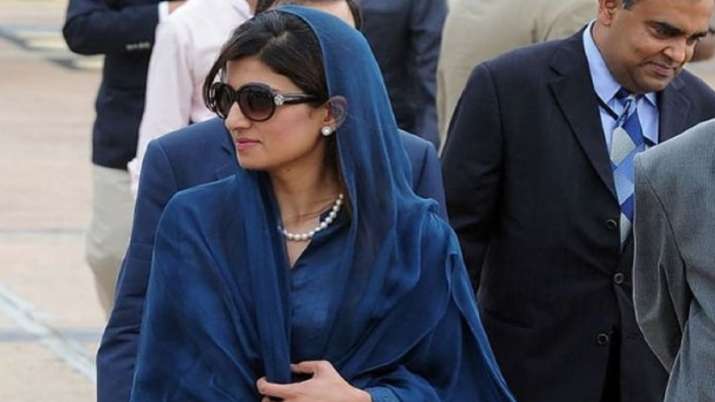Satinder Lambah, the diplomat who led the reverse- channel process between India and Pakistan from 2005 till 2014, and was smooth until the end in his conviction that engagement with an adversary was a must-have, failed in New Delhi on Thursday night. He’d been ailing for about a time. He was 81 times old.
As also Prime Minister Manmohan Singh’s Special Envoy to Pakistan, Lambah held discreet behind- the- scene addresses with his counterpart Tariq Aziz, appointed for the reverse- channel process by also military sovereign General Parvez Musharraf. In his death, India has lost its foremost expert on Pakistan.
Lambah also served as special envoy to Afghanistan from 2001 to 2004. He was Delhi’s emissary at the Bonn conference and led India’s participation in thepost-Taliban reconstruction and redevelopment of the country, laying the foundations for the decade- and-a-half of Delhi’s successful engagement with thatcountry.An Indian Foreign Service officer of the 1964 batch, Lambah had before served as deputy high manager and high manager to Pakistan, and was also common clerk at the Pakistan- Afghanistan- Iran division at the Ministry of External Affairs. Associates recall him as a tone- effacing but professed diplomat. His last advertisement before he retired was as minister to Moscow from 1998 to 2001.
Nilima, and during his two tenures of duty in that country, he erected a redoubtable range of connections among Pakistan’s political and social elites that he mobilised for incubating bilateral ties.
He’d happed to meet Nawaz Sharif in the 1980s, during his first advertisement to Pakistan, through a collective friend. The youthful Sharif, who was also working in the family sword business and was nursing political intentions, was staying to admit Lambah at Lahore field when he flew in from Islamabad. The two drove back to the megacity in Sharif’s red sports auto.When Lambah returned to Islamabad as India’s high manager, a day after he presented his credentials, Sharif, by also Prime Minister, hosted a grand lunch in his honour, an unknown hello for an Indian diplomat in Pakistan.At the end of his term there, he was given a analogous farewell by Benazir Bhutto, who had succeeded Sharif as Prime Minister. Against the advice of the Foreign Office at the time, she hosted a lunch event to bid him farewell.“ He was a doyen of old academy tactfulness, which was about people, particular connections and face- to- face relations, and he was fully fascinating, ” said a coworker in the Indian Foreign Service.Amitabh Mattoo, professor at JNU’s School of International Studies, describes him “ as the stylish foreign clerk that India noway had ”.
Lambah’s part as Singh’s back- channel moderator with Musharraf saw relations between the two countries ameliorate greatly from 2004 to 2008. A ceasefire was formerly in place from 2003. By 2006, India and Pakistan were said to be close to an accord on Kashmir through the reverse channel. And by early 2007, the two sides were reported to have changed a “ white paper ” detailing the terms, though Lambah himself noway spoke about this.
Musharraf’s decline after his ill- judged decision to sack the principal justice in March 2007 put the agreement on hold, Lambah has said in interviews. The machine services across the LoC to enable commerce between the two sides of J&K as well ascross-LoC trade, enforced during this time, appear to have been part of the proposed resolution. After the 2008 Mumbai attacks, the reverse channel driveled on until 2014 with Pakistan’s flip- duds on tracing and executing the Mumbai perpetrators icing a virtual halt to the bilateral engagement. At one point, thepost-Musharraf PPP- led mercenary government denied the actuality of the “ white paper ”.Lambah maintained in interviews as late as 2015 that the formula that he and Aziz had prepared had the concurrence of the leadership on both sides. He described it as a “ palm- palm ” for both countries and said it could serve as a base for any unborn resolution of the Kashmir issue.
In a speech at Jadavpur University in Kolkata in September 2018, Lambah said it was doubtful that Pakistan would change unnaturally in its stations towards India, but, in order to be an effective indigenous or global player, it was in India’s interests to insure good relations with neighbours.For this, he said engagement — different from dialogue – had to be maintained. He also refocused out that bilateral issues shouldn’t come an issue of domestic electoral politics. He was a votarist of an unrestricted visagovernance to enable as numerous Pakistanis to visit India, arguing that they were the stylish ministers of India in Pakistan. He also believed that India had to set its own house in order in J&K to help outlanders from fishing in worried waters.
During the reverse- channel times, Lambah assured complete secretiveness about his charge, though he was pursued by newshounds. Indeed in after times, he’d only talk about it in general terms, and was careful not to give out too important detail. He was veritably discreet in terms of what he participated of his assessments and conclusions. As someone who was deeply engaged with Pakistan as the designated back- channel contact, he remained inscrutable to outlanders, ” said T C A Raghavan, who served as deputy high manager in Islamabad during those times, and was latterly high manager to Pakistan.
When this journalist was going to Pakistan on a long- term assignment as a foreign pressman
, he advised “ You’ll be one of only two Indians( at the time there were two Indian intelligencers grounded in Pakistan) who can write what they see and hear for others to read. Write lots, write about everything. We diplomats write too, but that’s for the lines. ”

